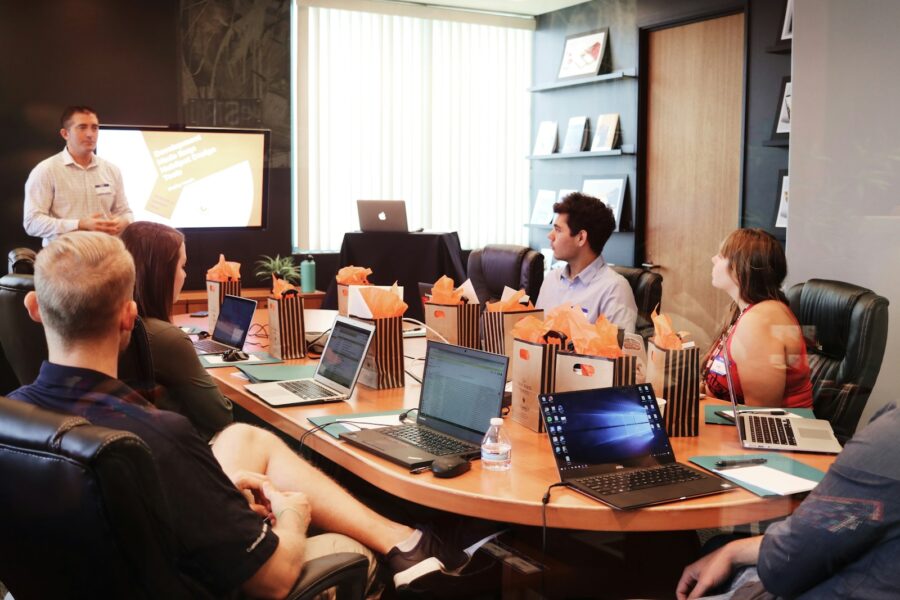With one in seven people in the UK having a form of neurodiversity, most organisations will have neurodiverse employees throughout their workforce.
Neurodiversity refers to the unique ways that individuals’ brains process information, and neurodiversity in the workplace means that working environments are made up of many unique traits and talents.
Neurodiverse individuals may face multiple challenges at work. For example, a company may employ a talented employee with exceptional attention to detail and pattern recognition skills yet struggle with social interactions in the office. They may avoid team meetings or find it challenging to navigate office politics. Other challenges facing neurodiverse individuals may include:
- Sensory sensitivities
- Executive functioning challenges
- Communication differences
- Attention and focus issues
- Anxiety and stress
- Task flexibility and adaptability
- Perception and misinterpretation
Whilst organisations have a great opportunity to recognise the value of diversity in driving innovation and success, some find it challenging to provide neurodivergent employees with the right support so that they can reach their full potential.
Recognising and accommodating differences in the workplace is a moral requirement, but it also benefits the company itself. Making suitable adjustments improves productivity, which is a strategic advantage for businesses.
One solution is providing education and awareness training to line managers and senior leaders – helping them to understand how organisations can adapt to accommodate neurodiverse talent, how to communicate in a sensitive manner, what different neurodiversity labels mean, and much more.
Managers are often the primary points of communication and contact for many employees, providing unbiased, fair, and inclusive guidance to help navigate challenges and foster growth within the organisation. Therefore, it’s crucial to invest in training managers, equipping them with the best tools to manage both neurotypical and neurodiverse employees effectively. This training enables managers to implement necessary adjustments, understand their team better, and address challenges collectively, promoting a truly inclusive team environment.
Understanding neurodiversity comes with huge benefits. By choosing neurodiversity training, organisations can help create a work environment which enables neurodivergent people to feel safe, supported and able to perform at their best. Training also helps managers to increase their soft skill capability to effectively support employees diagnosed with ADHD, Autism (ASD), and Tourette’s Syndrome.
It is hugely impactful in landing both behavioural and organisational culture change. New technologies, such as scenario-based learning, enables ‘active’ rather than ‘passive’ learning, where learners can explore a conversation with no limitations, stigma, and no fear of rejection or upsetting someone.
When all employees are given an environment where they can thrive and confidently interact with their managers, it boosts both productivity and loyalty. By providing a supportive work environment and training managers and employees on effective communication, everyone can express their full potential, creating a win-win scenario for all stakeholders.
Not only is this the right thing to do, but it also enhances key performance indicators (KPIs). Proactively shaping processes, procedures, and cultures, improving hiring practices, and focusing on talent management programmes benefit the bottom line. By tapping into a talent pool with diverse mindsets and creative thinking, productivity and innovation can be positively impacted. Investing in these areas not only fosters an inclusive workplace but also drives substantial business benefits.
Following training, managers and senior leaders should feel empowered to effectively support neurodiverse employees and help them reach their true potential in the workplace. However, it isn’t the case of carrying out a one-off training session, look to hold training at regular intervals throughout the year – quarterly, bi-annually. This will ensure new managers and leaders are captured under the programme.
To aid with delivering best-in-class training and ensuring a smooth workflow, appointing a specialist neurodiversity training provider is a great first step, as they will be able to tailor training to suit the needs of your organisation. Look to carry out training in a variety of ways, such as remote, gamified apps, and face-to-face, as everyone learns differently. Whatever you choose to do, know that any training you provide will have a positive impact on the support you provide your workforce. Helping managers assist employees from all walks of life to perform while prioritising their needs and wellbeing.
To conclude, organisations with a strong focus on neuroinclusion report more cohesive and effective teams, benefiting from true diversity of thought. Leaders leverage their teams’ neurodiversity, ensuring clear communication and understanding of each employee’s strengths and challenges.
Managers develop structured career paths and introduce changes sensitively. Neuroinclusive management emphasises a person-centric approach, benefiting the entire team. By fostering psychological safety, these organisations encourage all ideas and ensure employees feel comfortable speaking up without fear of negative consequences. This approach balances process and creativity, unlocking the full potential of every team member.

Sarah Carter
Sarah Carter is Head of Account Management at Onebright and leads on the management of clinical governance and auditing of mental healthcare services provided to business clients. She also has a key role in service innovation, research and business growth, as well as making sure every business client receives the best service.


